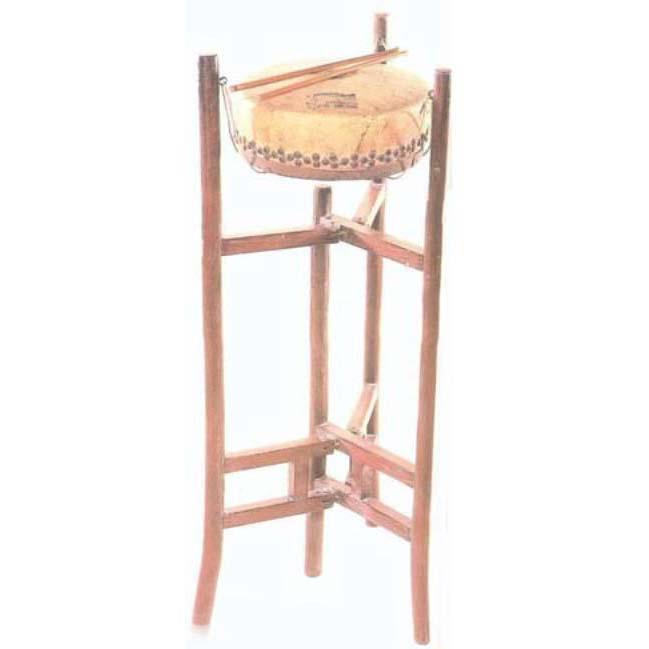How to maintain the drum
536 views · Organized by 天井 on 2022-02-10
The important part of the drum should be kept moist, and the drum skin should not be scratched when retracting, otherwise the drum skin will be broken due to changes in humidity.
As for the part of the drum skin, you can hold it under a fluorescent light and see from the bottom whether the thickness of the skin is the same and whether there are pinholes.

As for the part of the drum skin, you can hold it under a fluorescent light and see from the bottom whether the thickness of the skin is the same and whether there are pinholes.
Involving musical instruments
Bangu (Pinyin: bǎn gǔ) is a kind of percussion instrument, also known as Mingpi and Bangu. The "Jiegu" used in Qing music in the Tang Dynasty may be its predecessor. It has a long history in the folk. The "Continued Documents of the Qing Dynasty" contains: "The bangu, also known as the drum, has an urgent sound and chews, and is the leader of each utensil, and it is not easy to strike." It is the conductor instrument in the Chinese opera orchestra.
Guess you like
Organized by Fucui on 2022-02-10
Raise your wrists and stand your hands, and lift your arrows to the direction of your eyes to hit the drums. Avoid splitting the arrows too far to the sides or merging inwards when shooting. Always be upright, natural, hit straight, and drop forcefully. The moment after the arrow is dropped and the drum is beaten, it is still necessary to maintain the buckle style.
read >>
Organized by 蕾伊 on 2022-02-10
There are two ways of playing the drum, which are static and dynamic.
read >>
Organized by 湛鹰 on 2022-02-10
The board drum is a percussion instrument, also known as the sheet music and the ban drum. The "Jiegu" used in Qing music in the Tang Dynasty may be its predecessor. It has a long history in the folk. The "Continued Documents of the Qing Dynasty" contains: "The bangu, also known as the drum, has an urgent sound and chews, and is the leader of each utensil, and it is not easy to strike." Chang and Clapboard are named after one person plays both, and it is the conductor instrument in the Chinese opera orchestra. As early as the Tang Dynasty (618-907), it was used in "Qing Yue", and it was called "Jiegu" at that time.
read >>
 渝公网安备 50010702504639号
渝公网安备 50010702504639号